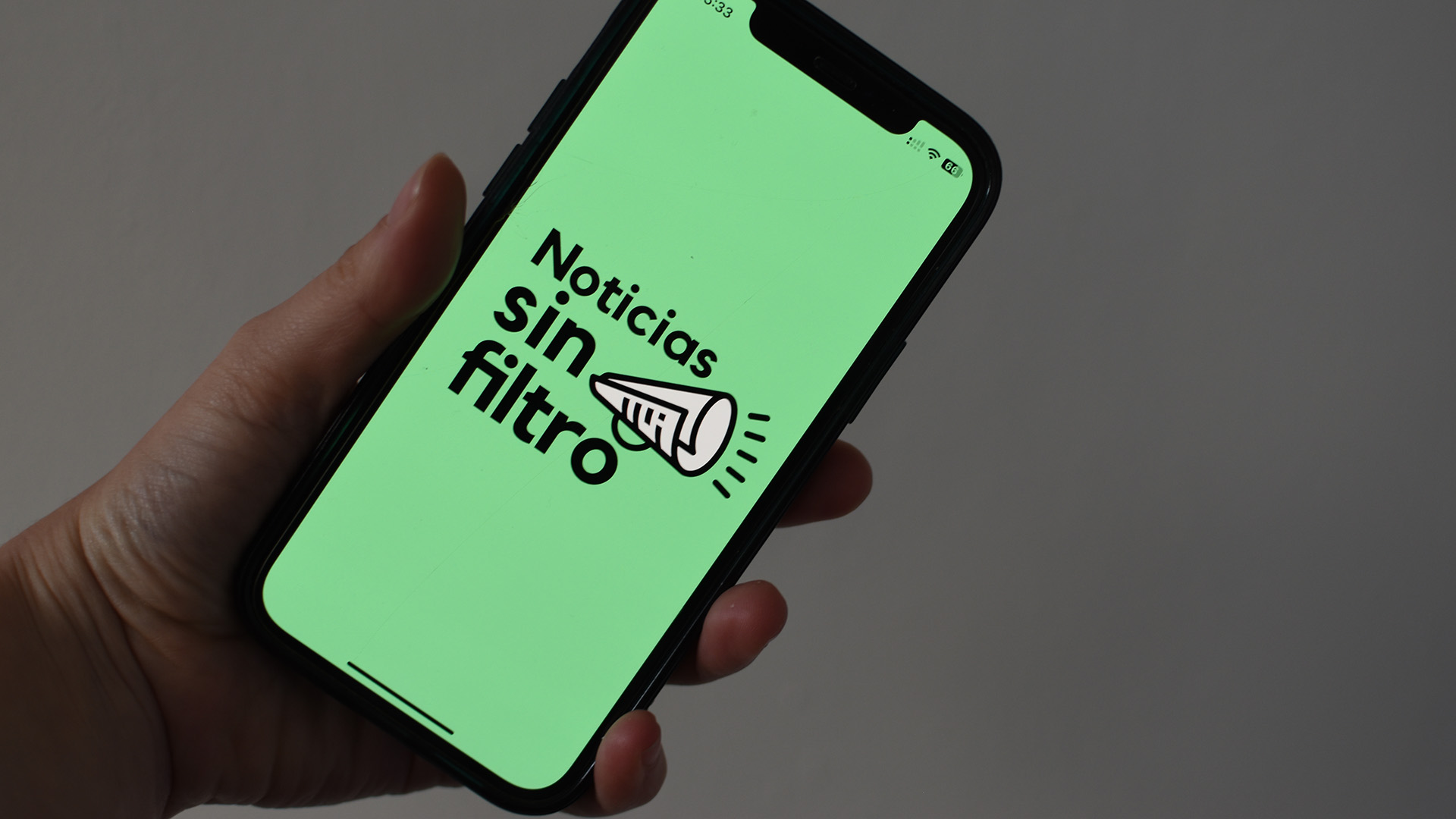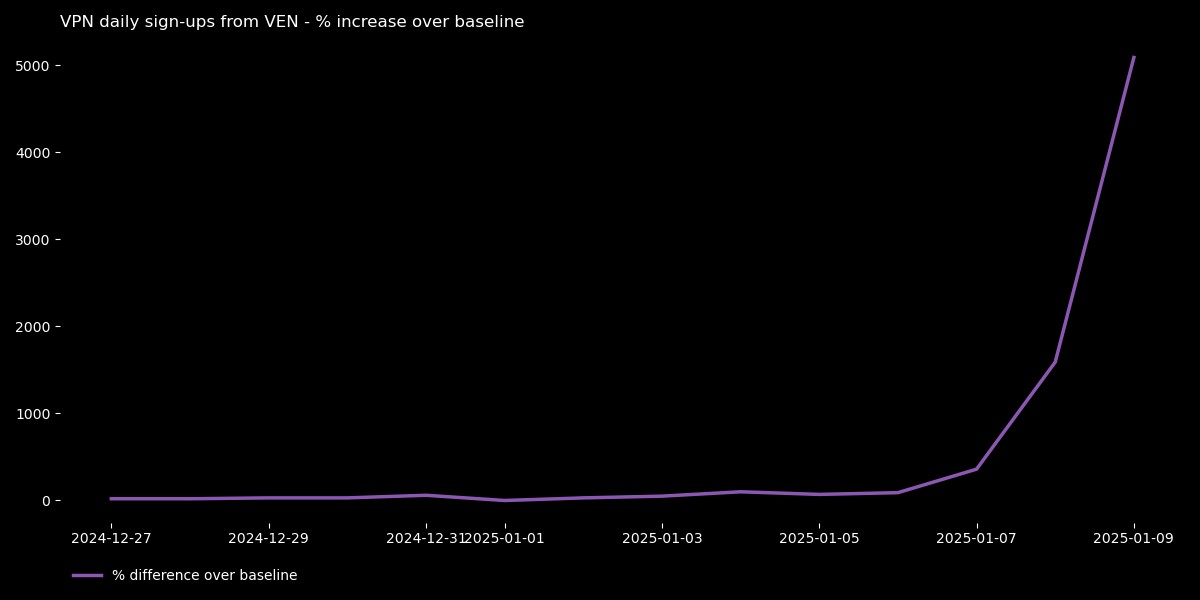Don't call it a VPN – how a newsreader app seeks to revolutionize censorship circumvention
A Venezuelan digital rights group developed an application to access censorsed news without the need for a VPN

Imagine waking up and not being able to access your social media accounts. X, TikTok, Signal, Reddit – they're all down. Scrolling the web, you might realize that most news sites are unavailable, too.
This has been the reality for people in Venezuela for months during the last electoral period. Between July 2024 and January 2025, digital rights group Ve Sin Filtro recorded an "unprecedented wave of censorship" that impacted 79 websites. Among media outlets, social networks, and civil society portals, restrictions also targeted censorship-resistant tools like the websites of the best VPN services and public DNS servers.
"It's extremely stress-inducing waking up and feeling completely disconnected. You don't know what happened last night in a context where being connected and accessing the most recent news can be essential to your day, to your security," Executive Director at Conexión Segura y Libre (home of Ve Sin Filtro) Andrés Azpúrua told TechRadar.
Azpúrua knew he had to do something. So, the digital rights group launched a new newsreader app in June – Noticias Sin Filtro, News Without Filter. About 150k users could then retain access to their favorite news sites during the latest round of censorship. But don't call it a VPN.
The censorship resilient newsreader
Noticias Sin Filtro is an anti-censorship newsreader mobile application that allows users to read and listen to the content produced by media outlets currently blocked under the Maduro government.
Presenting the project at RightsCon 25, the leading digital rights summit held in Taipei last February, Azpúrua explains that the app doesn't need an external virtual private network (VPN) or similar tool to work. It comes with built-in existing circumvention technology.
"We use multiple systems based on standard VPN technologies and protocols used to bypass sophisticated blocks, so it's very censorship-resistant," said Azpúrua.
By using a lot of fallback VPNs, the app ensures that, if one VPN solution doesn't work, it will fall back to the second, then to the third, until the censorship-resistant tunnel is working and the connection can be made.
Estamos en Taiwan con la comunidad global de derechos humanos digitales en @rightscon 2025 https://t.co/kw0oAiTIDHFebruary 25, 2025
Sure, people in Venezuela cannot use Notocias Sin Filtro to bypass social media blocks, but the group wanted to make it easier for as many people as possible to exercise their right to stay informed.
"We have been promoting the idea of using VPNs for over 10 years to circumvent the country's pervasive internet censorship, but people don't use VPNs as much as we had hoped for many cultural, practical, and tech awareness issues," explains Azpúrua. "There's no simpler thing than just opening an app."
The work of the Conexión Segura y Libre team couldn't come at a better time, either. From the beginning of July 2024 and the end of January 2025, the group documented 80 cases of blocked circumvention tools, made up of 28 VPN services and two public DNS servers.
Specifically, authorities blocked the VPN websites of popular providers such as Proton VPN, NordVPN, Surfshark, ExpressVPN, Windscribe, and IPVanish.
And, while many Venezuelans still managed to use these services in the country, downloading a VPN app became even more difficult for the less technically-minded individuals across the country.

In addition to censorship circumvention, Noticias Sin Filtro also supports local independent news outlets impacted by government-imposed censorship.
Every time you click on an article, you're redirected to its actual website, meaning that the publication will receive revenue from its traffic. "That's a good thing. You need the local media to continue to exist and continue their work," said Azpúrua.
Users can fully customize their feed to keep up with all their favorite news, too. The app also offers radio-like podcasts to give people the same feeling of listening to the radio, which is still the most popular medium for accessing news in Venezuela, but censorship-free.
Another important feature is the app's wider compatibility, especially on Android, the operating system (OS) most common in Venezuela. It supports older Android smartphones, too, from version 5.1 upwards.
While the iPhone version still lacks some features, the app works on iPhones with iOS 17 and upwards.
What's next?
Venezuelan censors also reportedly refined their tactics in addition to expanding their list of targets. Ve Sin Filtro's experts observed a progressive increase in censorship applied by smaller internet service providers (IPs), all adopting a variety of blocking techniques to make blocks more difficult to circumvent.
This is why Noticias Sin Filtro is set to remain a crucial resource for people in Venezuela, and why it plans to get even better.
The team is working on an offline news feature that allows users to consume content even with a throttled internet connection. Better support for local news and a Sunday edition focused on analysis and in-depth articles are also in the pipeline.
2024 was the worst year on record for internet freedoms
Venezuela isn't the only country increasingly resorting to internet censorship. Once again, 2024 was the worst year on record for internet freedoms, with seven countries joining the list of offenders for the first time.
2025 looks to be continuing this backsliding trend in internet censorship. In the past month, a new wave of blocks in Russia targeted VPN apps and Cloudflare subnets, and Turkey enforced a 42-hour social media shutdown amid protests in the same week.
This is why the final goal for Noticias Sin Filtro may be to go beyond the country's borders. "We need to finish to stick the landing in Venezuela and strengthen the application, but it's very replicable," said Azpúrua.

Chiara is a multimedia journalist committed to covering stories to help promote the rights and denounce the abuses of the digital side of life – wherever cybersecurity, markets, and politics tangle up. She believes an open, uncensored, and private internet is a basic human need and wants to use her knowledge of VPNs to help readers take back control. She writes news, interviews, and analysis on data privacy, online censorship, digital rights, tech policies, and security software, with a special focus on VPNs, for TechRadar and TechRadar Pro. Got a story, tip-off, or something tech-interesting to say? Reach out to chiara.castro@futurenet.com
You must confirm your public display name before commenting
Please logout and then login again, you will then be prompted to enter your display name.